February 24 stands as one of history’s most eventful days, witnessing the rise and fall of empires, groundbreaking discoveries, and moments that shaped our modern world across centuries of human achievement.

Politics and Government Events on February 24
1917 – Zimmermann Telegram Revealed to United States
British intelligence delivered the infamous Zimmermann Telegram to U.S. Ambassador Walter Hines Page in London. The intercepted German diplomatic cable proposed a military alliance with Mexico against the United States.
Germany promised to help Mexico reclaim Texas, New Mexico, and Arizona if America entered World War I. This revelation galvanized American public opinion and accelerated the United States’ entry into the Great War.
1918 – Estonian Declaration of Independence

Estonia boldly declared its independence from the Russian Empire as revolutionary chaos engulfed the former tsarist territories. The Estonian Provisional Government issued the historic proclamation despite German military occupation of much of the country.
This courageous declaration marked the beginning of Estonia’s struggle for recognition and survival as an independent nation. The new republic would face immediate challenges from both German forces and Bolshevik Russia.
1949 – Arab-Israeli War Armistice Agreements Signed
The Armistice Agreements were formally signed, bringing an official end to the hostilities of the 1948 Arab-Israeli War. These agreements established temporary borders and created demilitarized zones between Israel and its Arab neighbors.
The armistice negotiations marked Israel’s first major diplomatic achievement as a new nation. However, the agreements provided only a temporary ceasefire rather than lasting peace settlements.
1966 – Ghanaian Military Coup Overthrows Nkrumah
The National Liberation Council executed a successful military coup while President Kwame Nkrumah was visiting China. Ghana’s first president and independence leader was permanently exiled from the country he had led to freedom.
The coup ended Nkrumah’s increasingly authoritarian rule and his ambitious pan-African socialist agenda. Military leaders cited economic mismanagement and political repression as justifications for their dramatic intervention.
1981 – 23rd Amendment to Spanish Constitution
A devastating earthquake struck Central Greece with a magnitude of 6.7, causing widespread destruction and loss of life. The seismic event killed twenty-two people and injured over 400 others across the affected region.
Property damage exceeded $812 million as buildings collapsed and infrastructure crumbled throughout the Gulf of Corinth area. The earthquake highlighted Greece’s vulnerability to seismic activity and spurred improvements in building codes.
2008 – Fidel Castro Retires from Cuban Leadership

Fidel Castro announced his retirement as President of Cuba and head of the Council of Ministers after 32 years in power. The aging revolutionary leader stepped down due to illness but retained his position as Communist Party chief.
Castro’s retirement marked the end of an era in Cuban politics and Cold War history. His younger brother Raúl Castro assumed the presidency, continuing the family’s control over the island nation.
2022 – Russian Invasion of Ukraine Begins
Russian President Vladimir Putin ordered a full-scale military invasion of Ukraine, escalating the conflict that began with recognition of breakaway regions. The assault marked the largest military operation in Europe since World War II.
The invasion triggered a global crisis affecting international security, energy markets, and food supplies worldwide. Ukraine’s resistance surprised many observers and galvanized Western support for the embattled nation.
Military and Naval History on February 24
1942 – Battle of Los Angeles False Alarm
Anti-aircraft guns unleashed a massive barrage over Los Angeles during a false alarm that lasted until early February 25. Nervous military personnel mistook weather balloons and atmospheric phenomena for enemy aircraft in the tense wartime atmosphere.
The incident created panic among residents and embarrassed military commanders tasked with protecting the West Coast. Searchlights swept the sky while artillery shells exploded overhead, creating a spectacular but ultimately pointless display of defensive firepower.
1943 – Greek Resistance Protests in Athens
Greek citizens staged the first large-scale protest march against Axis occupation forces in Athens. The demonstrations erupted over rumors that Greek workers would be forcibly transported to Germany for labor service.
Protesters clashed violently with German occupation troops and Greek collaborationist police forces. The courageous resistance marked a turning point in Greek opposition to Nazi rule and inspired further acts of defiance.
1991 – Gulf War Ground Campaign Begins
Coalition ground forces crossed the Saudi Arabian border into Iraq, launching the ground phase of Operation Desert Storm. The massive assault involved hundreds of thousands of troops from multiple nations united against Saddam Hussein’s regime.
The ground campaign followed weeks of intensive aerial bombardment that had devastated Iraqi military positions. Coalition forces achieved rapid success, liberating Kuwait and destroying much of Iraq’s military capability within days.
1942 – MV Struma Tragedy
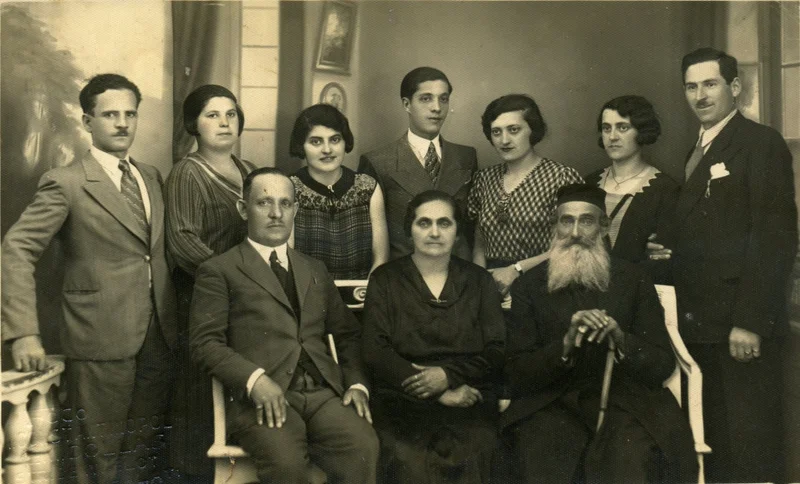
Soviet forces torpedoed the MV Struma in the Black Sea, killing 791 Romanian Jewish refugees and crew members. The overcrowded vessel had been carrying Holocaust survivors seeking safety in Palestine when the tragic attack occurred.
The incident highlighted the desperate plight of Jewish refugees during World War II and the complex politics surrounding their rescue. Most passengers had already endured months of bureaucratic delays and dangerous conditions aboard the unseaworthy vessel.
Science and Discovery Milestones on February 24
2001 – Claude Shannon Dies
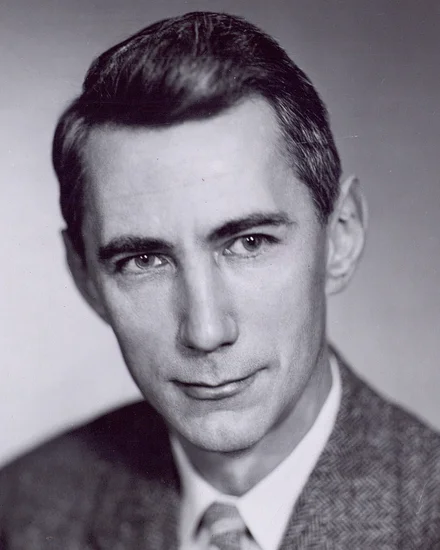
Claude Shannon, the brilliant mathematician who founded information theory and digital communications, passed away at age 84. His groundbreaking work laid the theoretical foundation for the entire digital revolution and computer age.
Shannon’s mathematical theories enabled the development of everything from computer networks to space communications. His legacy continues to shape how humans process, store, and transmit information in the modern technological era.
2020 – Katherine Johnson Dies
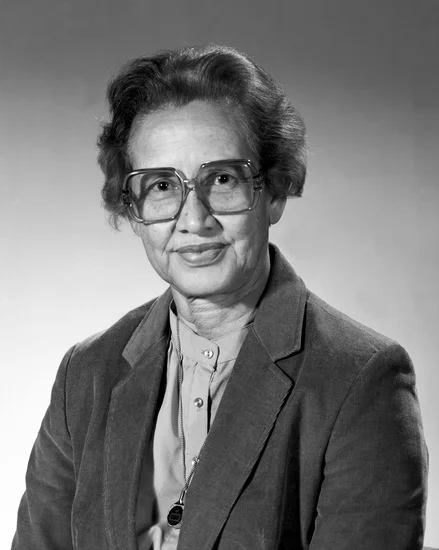
Katherine Johnson, the pioneering NASA mathematician whose calculations helped launch the first Americans into space, died at age 101. Her precise computations verified the electronic calculations for John Glenn’s historic orbital flight in 1962.
Johnson overcame racial and gender barriers to become one of NASA’s most trusted mathematicians during the space race. Her life story inspired millions and demonstrated the crucial contributions of African American women to space exploration.
2007 – Japan Launches Fourth Spy Satellite
Japan successfully launched its fourth reconnaissance satellite, enhancing its ability to monitor potential security threats in the region. The satellite deployment strengthened Japan’s independent intelligence-gathering capabilities amid growing concerns about North Korea’s nuclear program.
The launch represented Japan’s commitment to developing indigenous space-based surveillance systems. The new satellite joined a constellation designed to provide comprehensive coverage of potential military activities in East Asia.
Cultural and Arts Events on February 24
1986 – Rukmini Devi Arundale Dies

Rukmini Devi Arundale, the legendary Indian classical dancer who revived Bharatnatyam dance, passed away at age 82. Her artistic vision transformed the ancient temple dance form into a respected classical art performed on global stages.
Arundale founded the Kalakshetra Foundation in Chennai, which became a premier institution for Indian classical arts education. Her dedication to preserving and promoting Indian cultural traditions influenced generations of dancers and musicians worldwide.
1978 – Alma Thomas Dies
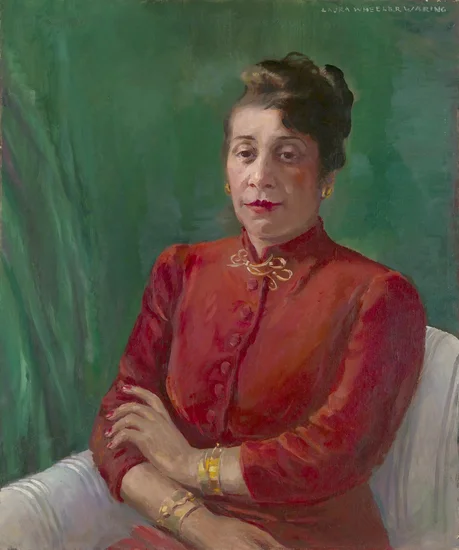
Alma Thomas, the groundbreaking African American painter and educator, died at age 87 after a distinguished career spanning seven decades. Her vibrant abstract works drew inspiration from nature and became celebrated examples of Washington Color School painting.
Thomas was the first African American woman to have a solo exhibition at the Whitney Museum of American Art. Her colorful canvases reflected her deep connection to the natural world and her innovative approach to abstract expressionism.
1994 – Dinah Shore Dies
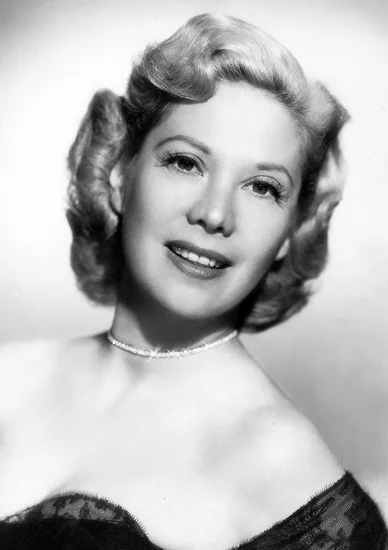
Dinah Shore, the beloved American entertainer who dominated television and music for decades, passed away at age 77. Her warm personality and smooth vocal style made her one of the most popular performers of the mid-20th century.
Shore’s television variety shows brought music and entertainment into millions of American homes during the golden age of broadcasting. Her career spanned radio, television, and film, earning her multiple Emmy Awards and a devoted fanbase.
2014 – Harold Ramis Dies

Harold Ramis, the brilliant comedy writer and director behind “Ghostbusters” and “Groundhog Day,” died at age 69. His witty screenwriting and innovative directing helped define American comedy cinema for multiple generations.
Ramis’s collaborative work with Bill Murray and other comedic talents created some of the most memorable films in cinema history. His ability to blend humor with philosophical depth made his movies both entertaining and thought-provoking.
Religious and Social Events on February 24
1920 – Nancy Astor Becomes First Woman to Speak in British Parliament
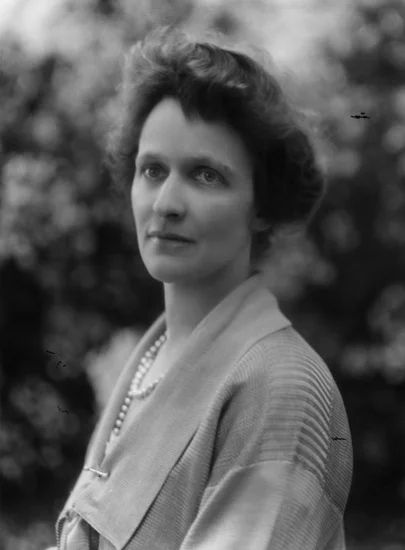
Nancy Astor made history by becoming the first woman to address the House of Commons following her election as Member of Parliament three months earlier. Her maiden speech marked a watershed moment for women’s political participation in Britain.
Astor’s groundbreaking parliamentary career opened doors for future generations of women in British politics. Her aristocratic background and sharp wit made her a formidable presence in the male-dominated Westminster system.
1983 – U.S. Congress Condemns Japanese American Internment
A special congressional commission formally condemned the Japanese American internment during World War II as a grave injustice. The Commission on Wartime Relocation and Internment of Civilians concluded that the mass detention was motivated by racial prejudice and wartime hysteria.
The commission’s findings paved the way for the Civil Liberties Act of 1988, which provided reparations to surviving internees. This acknowledgment represented a crucial step toward addressing one of America’s most shameful wartime violations of civil rights.
1916 – Sorokdo Hansen’s Disease Clinic Established
The Governor-General of Korea established Jahyewon clinic on Sorokdo Island to isolate patients with Hansen’s disease (leprosy). The facility represented both medical advancement and the tragic segregation of affected individuals from mainstream society.
The clinic’s creation reflected contemporary medical understanding of Hansen’s disease and social attitudes toward the condition. Patients faced lifelong isolation on the remote island, separated from families and communities despite the disease’s low contagiousness.
Business and Economic Events on February 24
1976 – Cuban Constitution Formally Proclaimed
Cuba’s 1976 constitution was formally proclaimed, establishing the socialist republic’s fundamental legal framework. The document codified the Communist Party’s leading role and outlined the structure of Cuba’s socialist government system.
The constitution reflected Cuba’s commitment to Marxist-Leninist principles and its alignment with the Soviet bloc during the Cold War. It established institutional structures that would govern Cuban society for decades to come.
2006 – Philippine President Declares State of Emergency
Philippine President Gloria Macapagal Arroyo declared Proclamation 1017, placing the country under a state of emergency to prevent a possible military coup. The dramatic move suspended certain civil liberties and granted expanded powers to security forces.
The declaration highlighted the ongoing political instability that plagued the Philippines during Arroyo’s controversial presidency. Opposition leaders criticized the emergency powers as an authoritarian overreach designed to suppress legitimate political dissent.
1967 – Shanghai People’s Commune Dissolved

Cultural Revolution leader Zhang Chunqiao announced the dissolution of the Shanghai People’s Commune, replacing it with a revolutionary committee structure. This decision marked a significant shift in China’s radical political experimentation during the Cultural Revolution.
The commune’s brief existence represented one of the most extreme attempts at implementing Maoist political theory. Its dissolution demonstrated the practical difficulties of maintaining such radical governmental structures even during China’s most revolutionary period.
Transportation and Infrastructure on February 24
1999 – China Southwest Airlines Flight 4509 Crashes

China Southwest Airlines Flight 4509, a Tupolev Tu-154, crashed near Rui’an, Zhejiang Province, killing all 61 people aboard. The devastating accident highlighted safety concerns in China’s rapidly expanding aviation industry during the 1990s.
The crash prompted comprehensive reviews of airline safety procedures and aircraft maintenance standards throughout China. Investigation findings led to improved training protocols and stricter oversight of commercial aviation operations.
2015 – Metrolink Train Derailment in California
A Metrolink commuter train derailed in Oxnard, California, after colliding with a truck abandoned on the tracks. The accident injured more than 30 passengers and crew members, highlighting ongoing safety challenges at railroad crossings.
The derailment prompted renewed discussions about grade separation projects and improved safety measures for rail corridors. Emergency responders praised the train’s crashworthiness design, which prevented more serious casualties in the high-speed collision.
2016 – Tara Air Flight 193 Crashes in Nepal

Tara Air Flight 193, a de Havilland Canada DHC-6 Twin Otter, crashed in Nepal’s mountainous terrain, killing all 23 people aboard. The accident occurred during a scheduled flight between Pokhara and Jomsom airports in challenging Himalayan conditions.
The crash highlighted the extreme dangers of aviation in Nepal’s mountainous regions, where unpredictable weather and challenging terrain create hazardous flying conditions. The tragedy added to Nepal’s troubling record of aviation accidents in the world’s highest mountain ranges.
Sports and Recreation on February 24
1990 – Tony Conigliaro Dies

Tony Conigliaro, the promising Boston Red Sox outfielder whose career was cut short by a devastating beaning, died at age 45. His 1967 injury became one of baseball’s most tragic moments, effectively ending his promising career at its peak.
Conigliaro’s comeback attempts inspired fans throughout New England, but he never fully recovered from the severe head injury. His story became a cautionary tale about the dangers of baseball and the fragility of athletic careers.
1993 – Bobby Moore Dies

Bobby Moore, England’s legendary World Cup-winning captain, passed away at age 51 after a battle with cancer. His leadership of England’s 1966 World Cup victory made him one of the most celebrated figures in football history.
Moore’s elegant defending and inspirational captaincy epitomized English football’s golden era. His premature death shocked the football world and prompted tributes from players, managers, and fans across the globe.
2010 – Dawn Brancheau Dies at SeaWorld

Dawn Brancheau, a senior animal trainer at SeaWorld, was killed by an orca during a live performance in Orlando. The tragic incident raised serious questions about the safety of marine mammal entertainment shows.
Brancheau’s death sparked widespread debate about keeping large marine mammals in captivity for entertainment purposes. The incident became the subject of the documentary “Blackfish” and led to significant changes in marine park operations.
Notable Births on February 24
1955 – Steve Jobs Born

Steve Jobs, the visionary co-founder of Apple Computer and Pixar Animation Studios, was born in San Francisco. His innovative leadership would revolutionize personal computing, mobile technology, and digital entertainment industries.
Jobs’s perfectionist approach to product design and marketing created some of the most influential consumer electronics in history. His legacy continues to shape how humans interact with technology in the digital age.
1977 – Floyd Mayweather Jr. Born

Floyd Mayweather Jr., the undefeated professional boxer who dominated multiple weight classes, was born in Grand Rapids, Michigan. His defensive mastery and promotional skills made him one of boxing’s biggest draws.
Mayweather’s perfect 50-0 professional record and flamboyant personality transformed him into a global sports celebrity. His pay-per-view events generated hundreds of millions in revenue, making him one of the highest-paid athletes in history.
1981 – Lleyton Hewitt Born

Lleyton Hewitt, the Australian tennis player who became the youngest world number one in ATP history, was born in Adelaide. His aggressive baseline game and fierce competitiveness made him a dominant force in early 2000s tennis.
Hewitt’s Grand Slam victories at the US Open and Wimbledon established him as one of Australia’s greatest tennis champions. His passionate on-court demeanor and fighting spirit endeared him to fans worldwide.
1967 – Brian Schmidt Born

Brian Schmidt, the Australian-American astrophysicist who won the Nobel Prize for discovering the accelerating expansion of the universe, was born in Montana. His groundbreaking research revolutionized our understanding of cosmology and dark energy.
Schmidt’s work provided crucial evidence that mysterious dark energy is driving the universe’s expansion at an accelerating rate. His discoveries fundamentally changed how scientists view the cosmos and its ultimate fate.
1955 – Alain Prost Born

Alain Prost, the French Formula One driver who won four World Championships, was born in Lorette. His smooth driving style and strategic racecraft earned him the nickname “The Professor” among racing fans.
Prost’s intense rivalry with Ayrton Senna defined Formula One during the late 1980s and early 1990s. His 51 Grand Prix victories and four championships established him as one of motorsport’s greatest champions.
1948 – Jayalalithaa Born
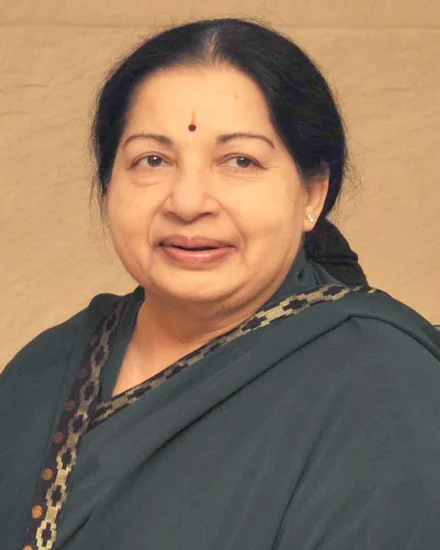
Jayalalithaa, the Indian actress who became Chief Minister of Tamil Nadu, was born in Mysore. Her transformation from film star to powerful politician made her one of India’s most influential regional leaders.
Jayalalithaa’s charismatic leadership and populist policies earned her devoted followers throughout Tamil Nadu. Her political career spanned decades and significantly shaped South Indian politics until her death in 2016.
Notable Deaths on February 24
1914 – Joshua Chamberlain Dies
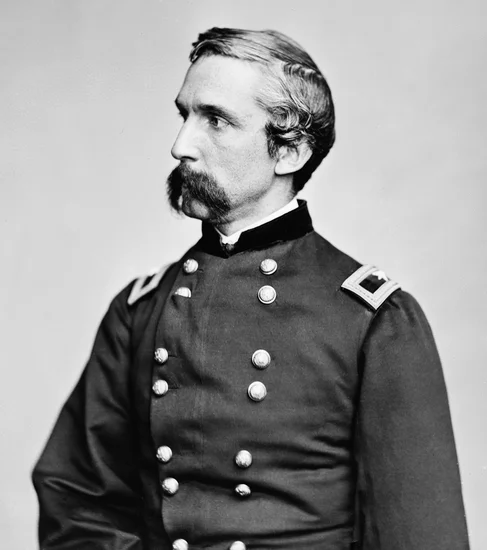
Joshua Chamberlain, the Union Army general who heroically defended Little Round Top at Gettysburg, died at age 85. His military leadership during the Civil War and later political career made him one of Maine’s most distinguished citizens.
Chamberlain’s defense of Little Round Top on July 2, 1863, likely saved the Union Army from defeat at Gettysburg. His post-war service as Maine’s governor and president of Bowdoin College demonstrated his commitment to public service.
1990 – Sandro Pertini Dies
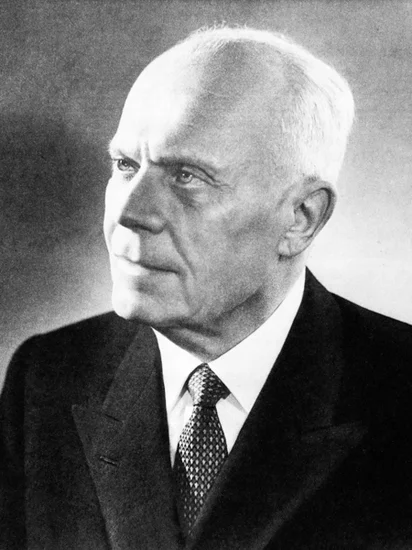
Sandro Pertini, Italy’s beloved seventh President who brought dignity and warmth to the office, passed away at age 93. His Socialist background and common touch made him one of Italy’s most popular presidents in modern history.
Pertini’s presidency from 1978 to 1985 provided stability during a turbulent period in Italian politics. His emotional celebration of Italy’s 1982 World Cup victory endeared him to millions of Italians across all political divisions.
2006 – Don Knotts Dies

Don Knotts, the beloved American comedian best known for playing Deputy Barney Fife on “The Andy Griffith Show,” died at age 81. His nervous, bumbling character became one of television’s most memorable comic creations.
Knotts won five Emmy Awards for his portrayal of the well-meaning but incompetent deputy in the fictional town of Mayberry. His physical comedy and perfect timing made him a television legend and comedy icon.
2006 – Octavia E. Butler Dies

Octavia E. Butler, the groundbreaking science fiction writer who explored themes of race, gender, and power, died at age 58. Her novels and short stories broke new ground in science fiction literature and earned critical acclaim.
Butler became the first science fiction writer to win a MacArthur Fellowship, recognizing her literary achievements and cultural impact. Her works like “Kindred” and “Parable of the Sower” addressed social issues through speculative fiction.
1925 – Hjalmar Branting Dies

Hjalmar Branting, Sweden’s first Social Democratic Prime Minister and Nobel Peace Prize laureate, died at age 64. His leadership helped establish Sweden’s democratic welfare state and peaceful foreign policy traditions.
Branting’s commitment to international cooperation and social justice earned him the Nobel Peace Prize in 1921. His political legacy shaped modern Swedish society and influenced Social Democratic movements worldwide.
Holidays and Observances on February 24
Independence Day in Estonia
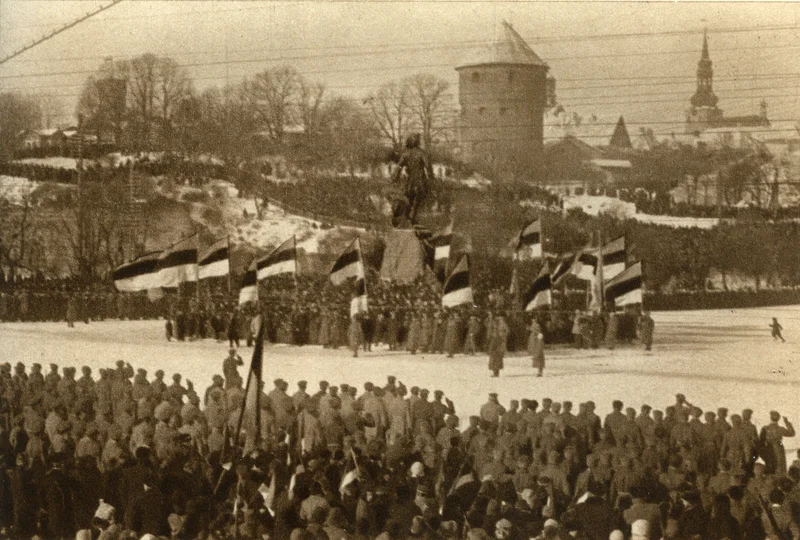
Estonia celebrates its Independence Day, commemorating the 1918 declaration of independence from the Russian Empire. The holiday honors Estonian national identity and the country’s struggle for sovereignty and democratic governance.
The celebration remembers both the original independence declaration and Estonia’s restoration of independence in 1991. Estonians consider the Soviet period an illegal occupation, making this day particularly significant for national identity.
Flag Day in Mexico
Mexico observes Flag Day, honoring the national flag as a symbol of unity and patriotism. The holiday celebrates Mexican national identity and the values represented by the flag’s distinctive green, white, and red colors.
Citizens participate in flag ceremonies and patriotic displays throughout the country. The observance reinforces Mexican cultural pride and national solidarity across diverse regional and social communities.
Dragobete in Romania
Romania celebrates Dragobete, a traditional holiday often called “Romanian Valentine’s Day.” The celebration honors love and the coming of spring, marking the awakening of nature and romantic feelings.
Young people traditionally participate in customs designed to bring good luck in love and relationships. The holiday reflects Romania’s rich folklore traditions and connection to seasonal agricultural cycles.
